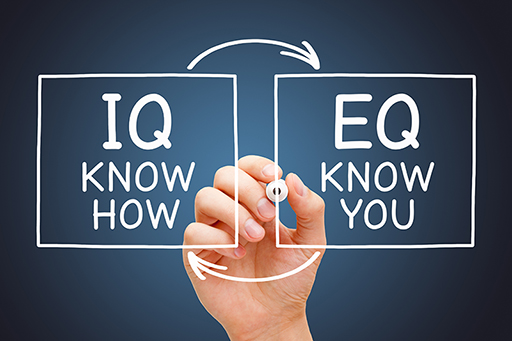1.1 Emotional intelligence
The key to becoming more comfortable with and conscious of the differences between you and others is your emotional intelligence, also known as EI or EQ. It incorporates skills and aptitudes you’ve already touched on, such as self-awareness and empathy.
People Builders (no date) suggest the following ways in which emotional intelligence (EI) can enhance diversity and inclusion in the workplace:
- Developing empathy – i.e. being able to put yourself in others’ shoes and to understand their perspectives, but also willing to help them improve their situation. This is a crucial skill when dealing with differences and building relationships.
- Reducing unconscious bias – EI can mitigate against the impact of your unconscious biases by improving your self-awareness, assertiveness, adaptability and impulse control.
- Creating an inclusive culture – EI gives you the relationship management skills to make an inclusive culture a reality, including multicultural competence and effective team development.
- Improving mindfulness – Emotions are organised responses to internal or external events, resulting in positive or negative meanings for the individuals involved. Understanding your inner landscape is vital in determining your response to the various social situations that a diverse workforce can create.
- Improving constructive thinking – helping you to generate creative ideas, settle disagreements, influence co-operation and build trust. The higher self-awareness and impulse control of emotionally intelligent people helps them to apply their knowledge constructively.
Watch this short video to find out more about it and how you can develop yours further:
In the next section, you’ll look at communication, another vital aspect of creating better and more inclusive relationships and environments.

